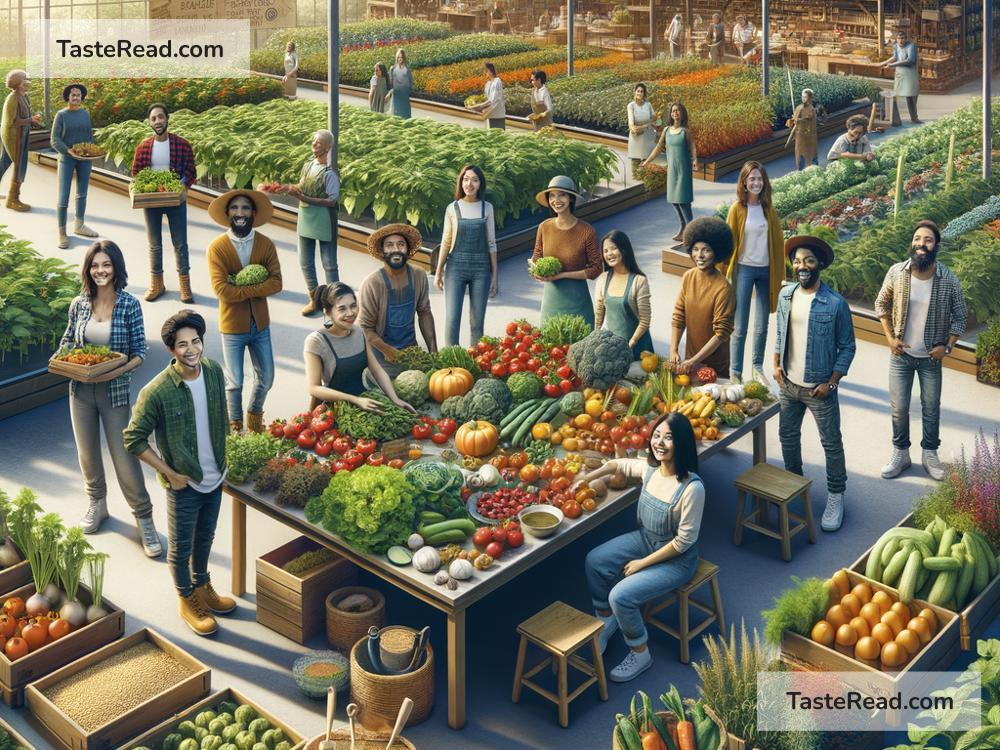The Future of Food Cooperatives: A Bright Path Ahead
Food is one of the most important parts of our lives. It nourishes us, brings people together, and fuels communities. But how we access it is just as important as what we eat. With big grocery chains dominating the market, many people are looking for alternative ways to buy food that strengthen local communities, support farmers, and promote sustainability. This is where food cooperatives shine. These member-owned businesses are rising in popularity, and as we look to the future, food cooperatives have an exciting role to play.
What Are Food Cooperatives?
Food cooperatives, often called “food co-ops,” are businesses owned by their members and rooted in community values. Instead of being run by a corporation aiming to maximize profits for shareholders, food co-ops are managed to meet the needs of their members. Members typically pay a small fee to join and then have a say in how the cooperative is operated. Decisions are democratic, meaning everyone has a voice.
Food co-ops are often focused on local and organic food, fair trade products, and sustainability. Many partner directly with farmers and producers in their area, reducing the need for middlemen. This creates a more transparent food system that supports local economies and offers fresher products to customers.
Why Food Cooperatives Matter
As people become more aware of environmental challenges and economic inequality, food cooperatives are stepping in to offer solutions. They provide an alternative to the larger grocery store chains that tend to prioritize profits over people or the planet. Here are some reasons they matter:
-
Support Local Farmers: Food co-ops often source food directly from local farmers. This keeps money in the local economy and supports small-scale agriculture.
-
Healthier Food Options: Co-ops often stock organic, non-GMO, and minimally processed foods. This gives members access to healthier, more sustainable food choices.
-
Environmental Sustainability: By focusing on local products and reducing the environmental impact of food transportation, food cooperatives contribute to a greener future.
-
Community Building: Co-ops are more than stores; they’re gathering places where people can connect, share ideas, and support one another.
-
Democratic Control: Unlike traditional grocery stores, co-ops give members the power to make decisions. This democratic model empowers individuals while balancing the needs of the community.
Challenges Facing Food Cooperatives
While food cooperatives have strong values, they also face challenges:
-
Competition: Large grocery chains often have lower prices, making it harder for smaller co-ops to compete. These chains also have more advertising power to attract shoppers.
-
Operational Costs: Running a co-op can be expensive. From managing inventory to paying staff fair wages, these businesses often have higher operational costs than conventional stores.
-
Awareness: Many people still don’t know what food cooperatives are or how they work. Educating the public can be difficult and take time.
Despite these challenges, many food cooperatives are thriving. Why? Because they offer something unique: values-driven shopping, better food quality, and a sense of connection. As more people prioritize healthy eating, sustainability, and community involvement, food co-ops have an opportunity to grow.
The Future of Food Cooperatives
So, what does the future hold for food cooperatives? Here are some trends and opportunities that point to a bright path ahead:
-
Increased Awareness: As consumer interest in sustainability and local food grows, more people are discovering food cooperatives. Social media, community events, and word-of-mouth are helping co-ops reach new audiences. Education is key to their long-term success.
-
Technology Adoption: Co-ops are adopting new technologies to streamline their operations. Online ordering systems, delivery services, and digital membership management make it easier for people to shop at co-ops and participate in their benefits.
-
Expansion of Membership: As co-ops grow, they can attract a broader range of members. Many co-ops are opening up their membership structure, making it affordable and inclusive for more people to join.
-
Collaborations: Future food cooperatives are likely to collaborate more with other organizations. By teaming up with local farms, schools, and businesses, co-ops can share resources, expand their reach, and amplify their positive impact.
-
Adaptation to Changing Tastes: As food trends evolve, co-ops are staying ahead by offering products that match consumer needs. Whether it’s plant-based foods, gourmet ingredients, or ethnic specialties, co-ops are often leaders in stocking diverse, high-quality products.
-
Youth Involvement: Younger generations are interested in sustainability, social justice, and supporting local businesses. Food cooperatives have a chance to tap into this passion, inviting young people to join as members, volunteers, and leaders.
-
Resilience in Crisis: During times of disruption, such as the COVID-19 pandemic, food cooperatives proved their ability to adapt. They supported local farmers, ensured food availability for their members, and upheld their values in challenging times. This resilience will attract more members in the future.
Final Thoughts
The future of food cooperatives holds great promise. As people seek alternatives to large grocery chains, co-ops offer a way to buy food that is healthier for families, better for the planet, and supportive of local economies. While challenges remain, the values-driven approach of food cooperatives sets them apart in the food industry. By embracing innovation, expanding their reach, and staying true to their principles, food cooperatives can play a crucial role in shaping the way communities connect with their food.
If you’ve never visited a food cooperative, consider finding one near you. They’re more than just grocery stores—they’re spaces for collaboration, community, and change. When you shop at a co-op, you’re investing in a brighter, more sustainable future for everyone.


